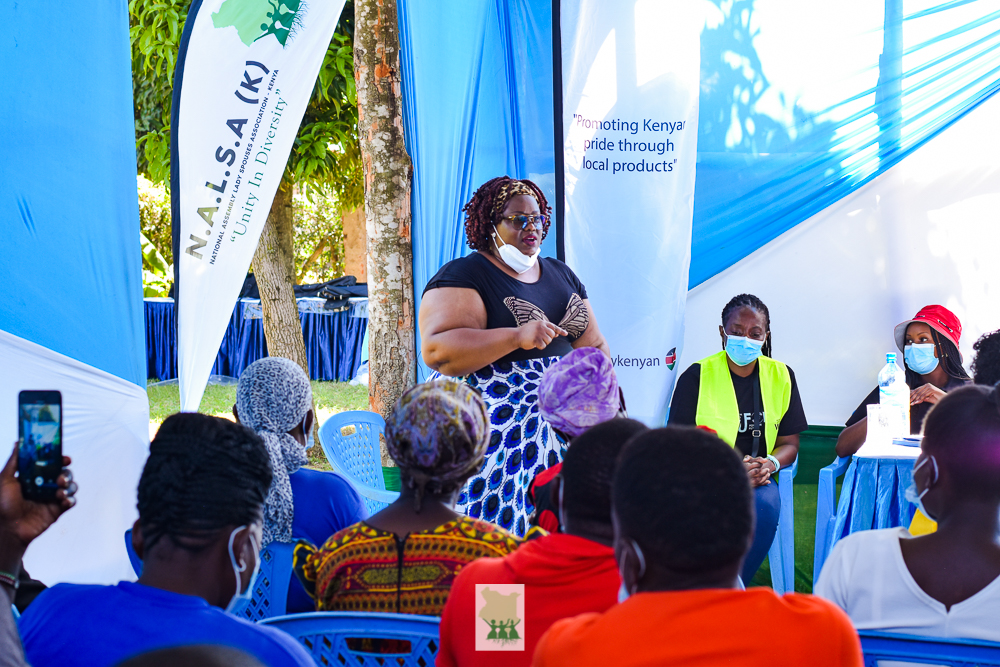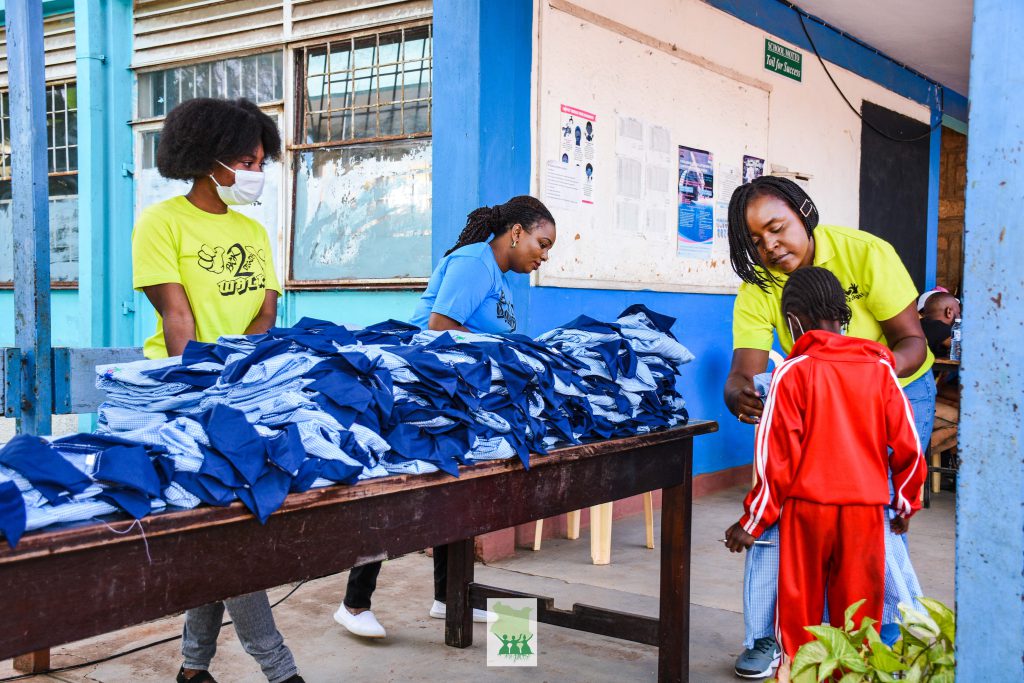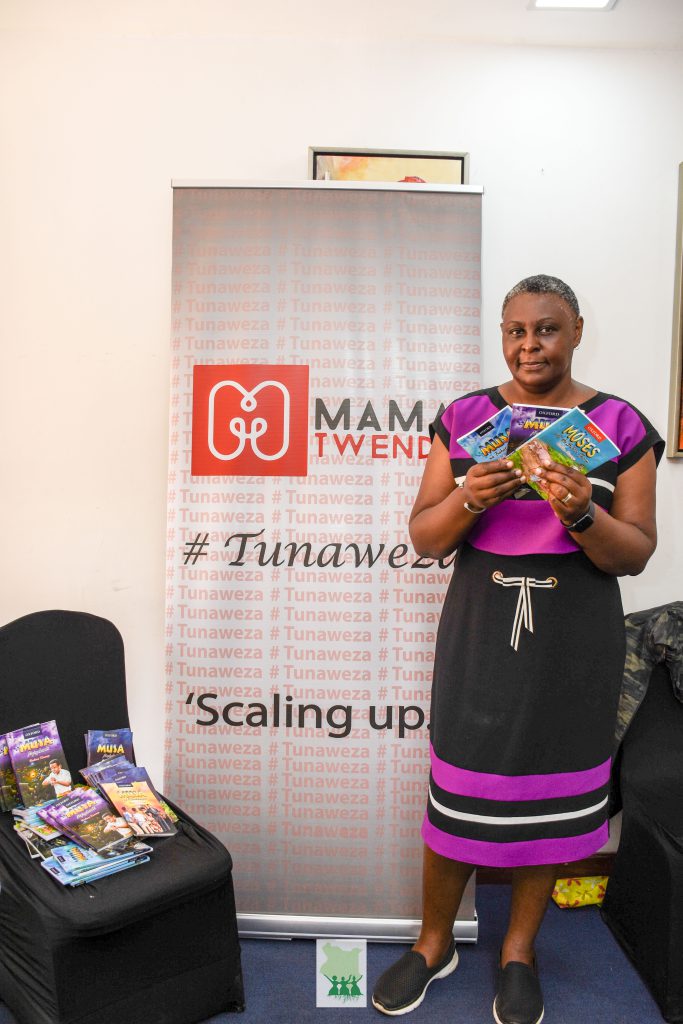NALSA(K) PROJECTS HELPING TO BREAK THE BIAS

Women and girls worldwide often face challenges that make it difficult to achieve equality
with men. These problems range from early motherhood to menstrual hygiene issues to
financial uncertainty.
This year’s International Women’s Day theme is ‘Break the Bias’. As we mark this day thi
year, we would like to acknowledge some of our members working to eliminate the
deliberate and unconscious biases women face in their communities so that women and
men can ultimately be on a level playing field.
1. Thelma Katana helping teen mums in Kaloleni
In November 2021, Mrs Katana launched a community outreach programme in her
constituency to help teen mums reintegrate into society and get some skills training. The
girls receive counselling and mentorship to help them overcome the stigma associated with
being young mums. They have also been trained in soap making and baking to have some
skills to help them make some money. In addition to all this, Mrs Katana donated a water
tank from which the young mums can gather and use or sell water in the semi-arid Kaloleni
region.
2. Salome Atandi promoting green energy in Alego-Usonga
Mrs Atandi’s two-fold project is helping women groups in Alego-Usonga constituency preserve the environment while benefiting financially. Under her non-profit organisation, Women United For Our Future (WUFOF), Mrs Atandi trains women to make and use briquettes as an alternative fuel source to charcoal and firewood. WUFOF will also help make the briquettes marketable in the constituency and beyond.

3. Beatrice Limo enabling menstrual hygiene in Kipkelion
Lack of sanitary towels and other menstrual hygiene products tend to get in the way of
young girls’ education. They often have to stay at home during their periods, interrupting
learning and affecting their overall performance. Mrs Limo’s project involves the donation of
sanitary towels to students in different schools across her constituency in a bid to deal with
this challenge.
4. Daisy Muriuki in Mbeere North
Mrs Muriuki, through her organisation, Milele Network, is solving some of the daily
challenges faced by those situated in the most remote areas of the constituency. More
specifically, her latest project involves installing fifty 10,000-litre water tanks for the same
number of women groups in the area. She is also setting up solar panels for homes where
the availability of electricity is a challenge. The former solves the problem of women in
Mbeere North having to trek long distances to fetch water while the latter lights up and
powers their homes at nightfall.

In addition to the projects above that directly benefit women and girls, we’d like to give a
special shout to two projects that have brought women together to improve their community.
5. Cynthia Theuri and the Eagle Mamas donate uniforms
Cynthia Theuri formed her non-profit Embakasi West Eagle Mamas Welfare Association (EWEMWA) intending to uplift the lives of women and children in Embakasi West. In the course of a week in February 2022, Mrs Theuri and the Eagle Mamas donated school uniforms to a total of 2200 students across ten public primary schools in the constituency.

6. Electina Wanyonyi and the Westlands Table Bankers promote literacy
Mrs Wanyonyi’s main project involves refurbishing two learning facilities in Westlands
constituency – Kangemi Primary School and Kabete Vet Lab Primary School. The facilities
will get both structural repairs to their classrooms and receive a furniture donation.
Additionally, Mrs Wanyonyi got together with the members of the various table banking
groups to donate storybooks to these and other schools across the constituency. This will
mark the second time the Westlands table bankers have presented books to students.

Gratitude to Proudly Kenyan.
We want to thank Proudly Kenyan for giving us the extra boost we needed to touch the lives of women and girls across Kenya. Hellen Keller famously said that alone we can do so little; together, we can do so much. Together, one step at a time, we will help to close the gender
gap.
By Sophia Wanyonyi and Brian Anyanzwa
Photos by Julia Laval
